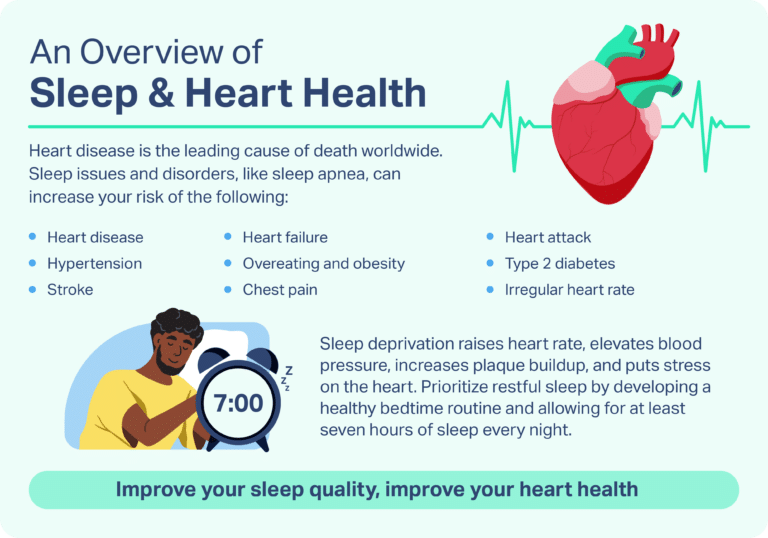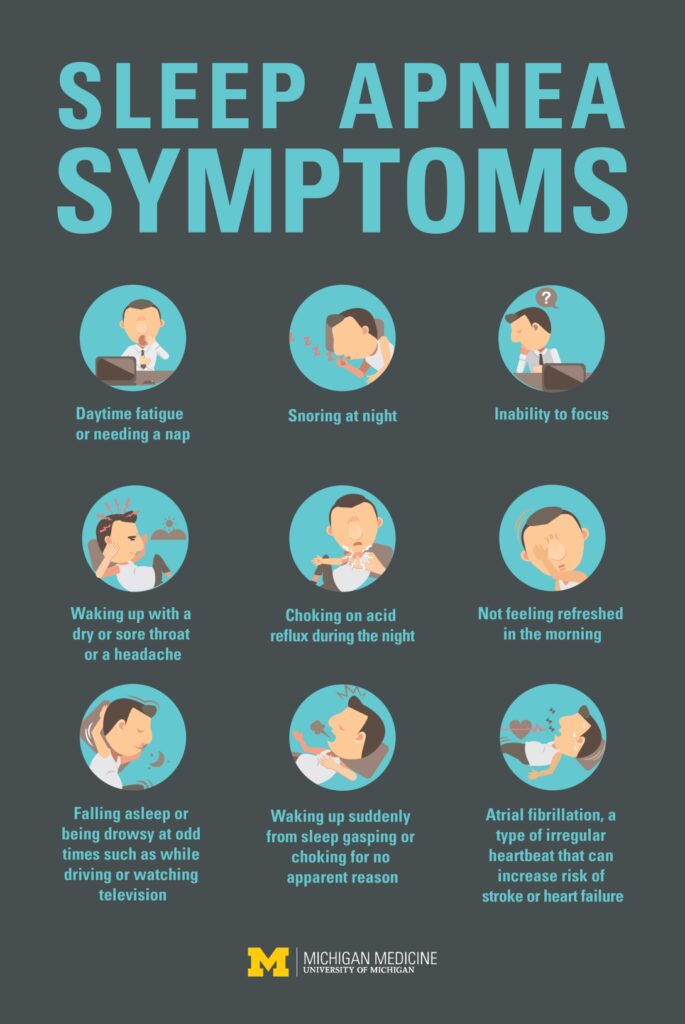Hey there, let’s talk about something that might not seem like a big deal at first snoring. It’s loud, annoying, and sometimes even funny. But did you know that snoring could actually be a sign of something more serious? That’s right. For some people, snoring might point to a condition called sleep apnea, which could put your heart at risk.
If you or someone you know snores like a freight train, keep reading. We’re diving into how snoring can impact your health, what to watch out for, and what you can do to protect your heart.
So, Is Snoring Really That Serious?

Not all snoring is a problem. Sometimes it’s just a sign that you’re sleeping in a weird position or had a bit too much wine before bed. But if snoring is loud, happens a lot, or comes with gasping, choking, or daytime exhaustion, it could be a sign of sleep apnea.
Sleep apnea causes your breathing to stop and start during the night, which might sound scary—and it is. It messes with your oxygen levels, triggers stress hormones, and puts extra pressure on your heart. Over time, this can lead to serious issues like high blood pressure, irregular heartbeats, and even heart failure.
How Does Snoring Affect the Heart?
Let’s break it down:
| What Happens | Why It’s Bad for Your Heart |
|---|---|
| Oxygen Drops | Your body doesn’t get enough oxygen, which forces your heart to work harder. |
| Stress Hormone Spikes | Hormones like adrenaline and cortisol surge, raising your blood pressure. |
| Interrupted Sleep Cycles | Poor sleep makes it harder for your heart to recover and repair itself overnight. |
| Heart Strain | Over time, all that extra effort can weaken your heart and increase your risk of heart failure. |
What Does Sleep Apnea Look Like?
Sleep apnea doesn’t come with a flashing sign, but there are symptoms to watch for:
Nighttime Symptoms
- Loud, chronic snoring (the kind your partner can’t ignore).
- Gasping, choking, or snorting in your sleep.
- Restless sleep or waking up multiple times a night.
- Dry mouth or a sore throat in the morning.
Daytime Symptoms
- Feeling tired all day, no matter how long you “slept.”
- Morning headaches.
- Trouble focusing or remembering things.
- Mood swings or irritability.
If any of these sound familiar, it’s worth chatting with your doctor.
Why Does Sleep Apnea Happen?
There are two main types of sleep apnea, and they’re caused by different things:
1. Obstructive Sleep Apnea (OSA)
- What it is: The muscles in your throat relax too much, blocking your airway.
- What causes it:
- Being overweight or having excess neck fat.
- Sleeping on your back.
- Drinking alcohol before bed.
2. Central Sleep Apnea (CSA)
- What it is: Your brain forgets to tell your body to breathe.
- What causes it:
- Heart problems like congestive heart failure.
- Certain medications, like opioids.
- Sleeping at high altitudes.
When Should You See a Doctor?
If snoring is just a once-in-a-while thing, you’re probably fine. But if it’s loud, frequent, and comes with symptoms like gasping or extreme fatigue, it’s time to call your doctor.
They might recommend:
- A sleep study: This tracks your breathing, heart rate, and oxygen levels while you sleep.
- Other tests: Like an echocardiogram or stress test to check your heart health.
Can Treating Sleep Apnea Protect Your Heart? Absolutely!

The great news? Sleep apnea is treatable, and managing it can make a huge difference for your heart.
Common Treatments for Sleep Apnea
| Option | How It Helps |
|---|---|
| CPAP Machine | Keeps your airway open by pumping air into your nose or mouth while you sleep. |
| Lifestyle Changes | Losing weight, avoiding alcohol, or sleeping on your side can reduce symptoms. |
| Oral Appliances | Custom devices reposition your jaw or tongue to keep your airway clear. |
| Surgery | In severe cases, surgery can remove extra tissue or fix structural issues in your airway. |
What You Can Do to Prevent Snoring and Heart Problems
You don’t have to wait for a diagnosis to start taking care of your health. Here are some simple steps you can take:
- Watch Your Weight: Extra pounds, especially around your neck, can make snoring worse.
- Change Your Sleep Position: Sleeping on your side can help keep your airway open.
- Cut Back on Alcohol: Drinking before bed relaxes your throat muscles, making snoring more likely.
- Stick to a Routine: Go to bed and wake up at the same time every day to improve sleep quality.
- Quit Smoking: Smoking inflames your airways, making it harder to breathe at night.
FAQs
1. Can snoring actually cause heart failure?
Not directly, but snoring caused by sleep apnea can put a ton of stress on your heart, increasing your risk of heart failure over time.
2. What if I’m not tired during the day? Could I still have sleep apnea?
Yes! Some people with sleep apnea don’t feel tired but still have oxygen drops and stress on their heart at night.
3. Can treating sleep apnea really help my heart?
You bet. Treating sleep apnea can lower your blood pressure, improve your heart’s function, and reduce your risk of heart disease.
4. Is sleep apnea more common in men?
Yes, especially in men over 50. However, women are more likely to develop it after menopause.
5. Can kids have sleep apnea?
Yes, though it’s less common. Enlarged tonsils or obesity are often the cause in children.
Conclusion
Snoring isn’t just annoying; it could be your body’s way of telling you something’s wrong. Chronic snoring, especially when linked to sleep apnea, can increase your risk of heart problems. The good news? With proper treatment, you can protect your heart and get a better night’s sleep.
If this sounds like you or someone you love, don’t wait. Talk to a doctor or sleep specialist today. Better sleep and better health are just around the corner.
References
- Mayo Clinic. “Snoring and Heart Health.”
- American Heart Association. “Sleep Apnea and Cardiovascular Risk.”
- National Sleep Foundation. “How Sleep Impacts Your Heart.”
- Radiological Society of North America. “Gender Differences in Sleep Apnea and Cardiac Health.”
- Centers for Disease Control and Prevention. “Chronic Diseases and Sleep.”


